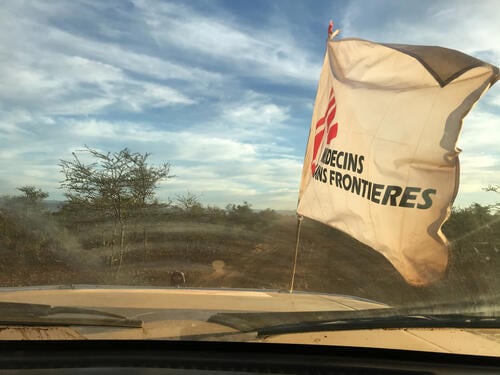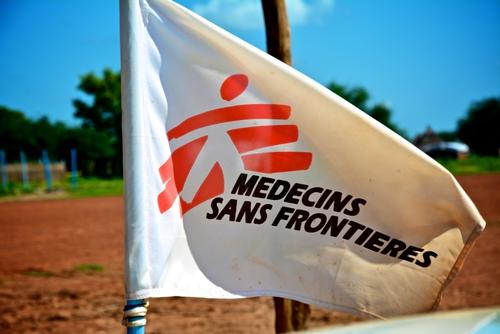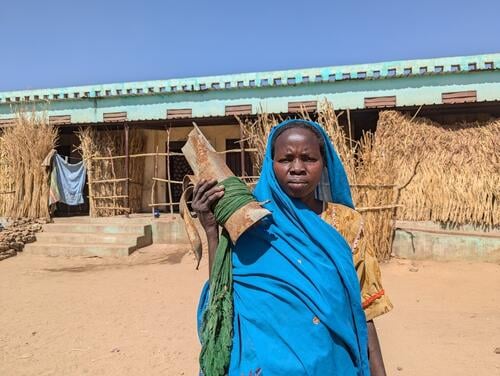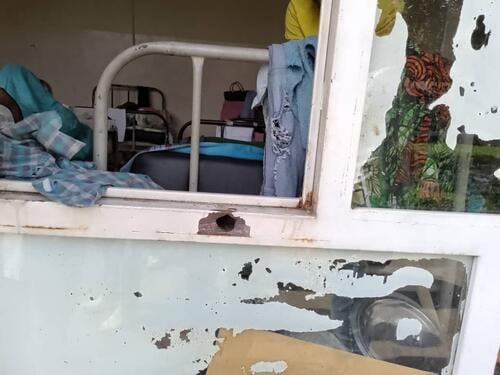In recent weeks, MSF has been rightly challenged on social media and in the media about the use of sensitive photographs in our public communications. Among the issues highlighted was our decision to publish identifiable photographs of a 16-year-old girl who was the victim of rape in Ituri, Democratic Republic of Congo. We acknowledge that the publication of these images was a mistake, and we are sorry. We have removed these images and other sensitive photographs from the online article and are taking a series of actions to put better safeguards in place.
This incident has revealed inadequacies in our guidelines on the gathering and use of images, and inconsistencies in how those are implemented across MSF. We are working to remedy this problem and are grateful to those who have raised it.
As an immediate action, we have added clearer language to our production guidelines to protect minors, defined as anyone under 18. The revised section requires that we change the name and obscure the visual identity of minors who are victims of abuse, exploitation, or who are suffering from a highly stigmatised condition. The rules impose additional restrictions on any content featuring minors. They also clarify that minors cannot provide informed consent on their own.
In the case of the victim in Ituri, she provided consent to the photographer and came forward to share her story, with the support of medical and psychological staff. As an orphan, she had no parent or guardian to support her. We recognize that we should have taken additional steps to protect this survivor's identity, considering her status as a minor.
As a doctor, I am very aware of the responsibility we have when it comes to the protection of people in our care. We often see people at the toughest time of their lives. We must always avoid exposing, exploiting, or endangering victims of violence and abuse. And we must ensure that our vital work of bearing witness to suffering and abuse does not cause further harm.
A full review of our audio-visual archives is already underway, and we are also reviewing our content production guidelines to bring them in line with new MSF-wide guidance on equity, diversity and inclusion (EDI) for communications and fundraising content.
Additional concerns have been raised in an open letter addressed to the MSF International Board highlighting photographs taken at MSF facilities and available for sale on the web platforms of major photo agencies. Examples cited include disturbing examples of children photographed in states of extreme vulnerability and pain in MSF structures, in some cases available for purchase as an “art print”.
MSF does not hold the copyright for these images, and does not profit from the sale of images from stock agencies. Nevertheless, we are concerned about the way these images are being distributed and commercialized, and we have begun engaging with key stakeholders in the photo industry to address this problem.
When we authorize or engage with external media or content producers to visit our medical projects, it is in order to share stories from the patients and communities we serve and help amplify important humanitarian issues. This work may be done with the best intentions, but some of the images collected do not meet adequate standards in terms of dignified representation of patients or communities.
An essential part of MSF's social mission is to highlight the medical needs of communities and help amplify the voices of people affected by conflict and crises. Since MSF’s creation we have worked alongside journalists and photographers to help us achieve this. We seek to engage directly with patients and their communities so they can share their own stories. We have a clear duty to "do no harm”, in line with our medical ethics. If we fail to respect people's dignity and agency, it is also a failure of our humanitarian mission.
Following a decision in 2021, MSF has recently started a full review of its own audio-visual media database (our entire collection spanning 50 years contains close to 200,000 items). This review covers many aspects including representation of our staff, patients and communities, attention to the dignity and agency of people portrayed, and possible stereotyping. We expect to finalise this process by the end of 2022. As we restrict usage, add warnings or archive images, we will notify the content producers and agencies involved so they can follow suit.
Going forward, we will intensify efforts to ensure compliance with the content production guidelines and EDI guidance by MSF staff, content producers contracted by MSF, and visiting media. We will also review our contracting policies and procedures with freelancers and agencies.
Earlier this year, MSF launched an internal peer feedback group composed of communications staff as well as EDI experts to provide advice to content producers on campaigns or materials. We will promote this group and ensure that it is involved in potentially sensitive projects from the outset.
In my view, being challenged internally and externally remains vital for us as practitioners across multiple disciplines, including as medical professionals, humanitarians and photojournalists. For MSF, our ultimate responsibility is to protect the health and well-being of the people we seek to assist.






